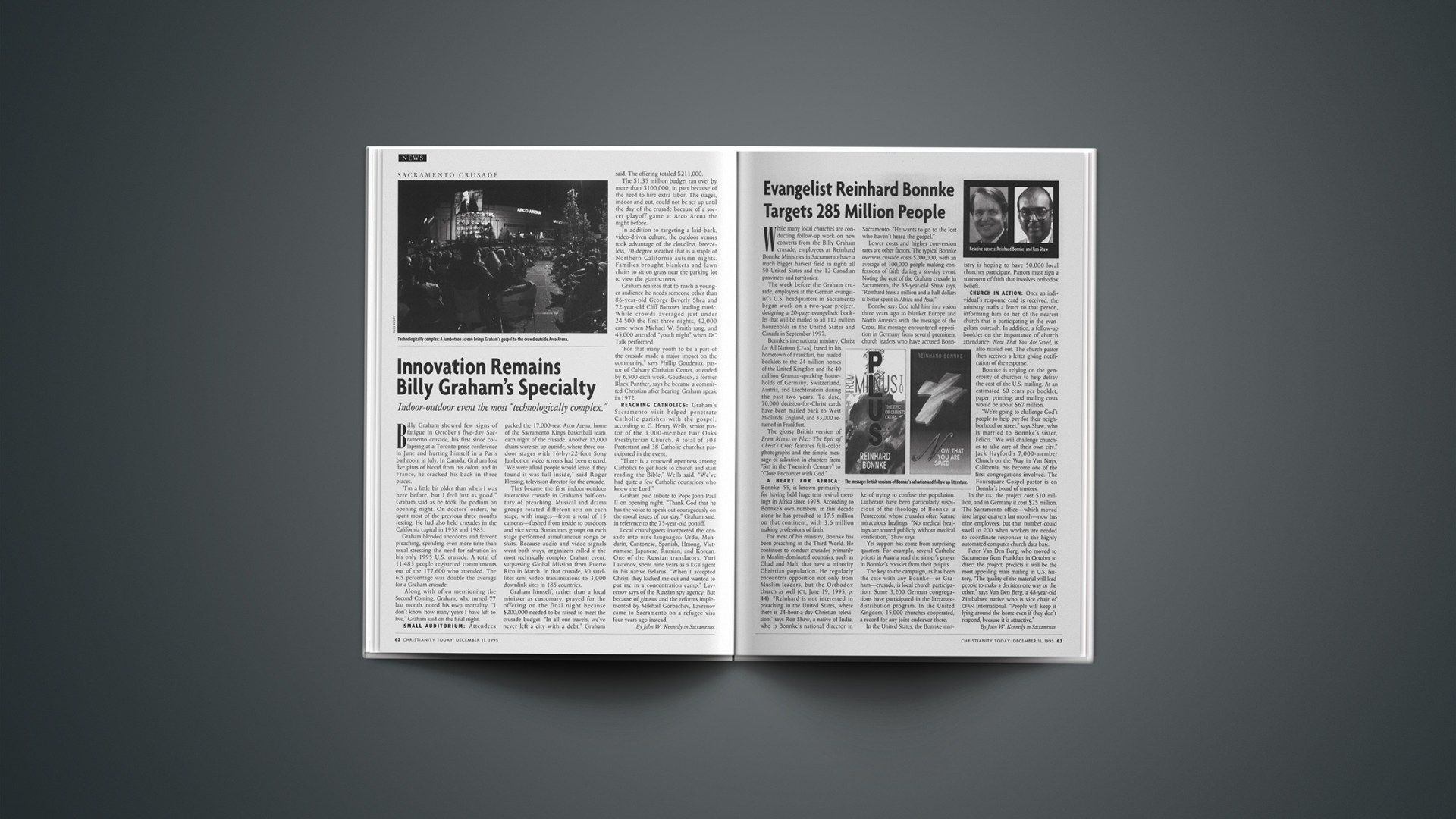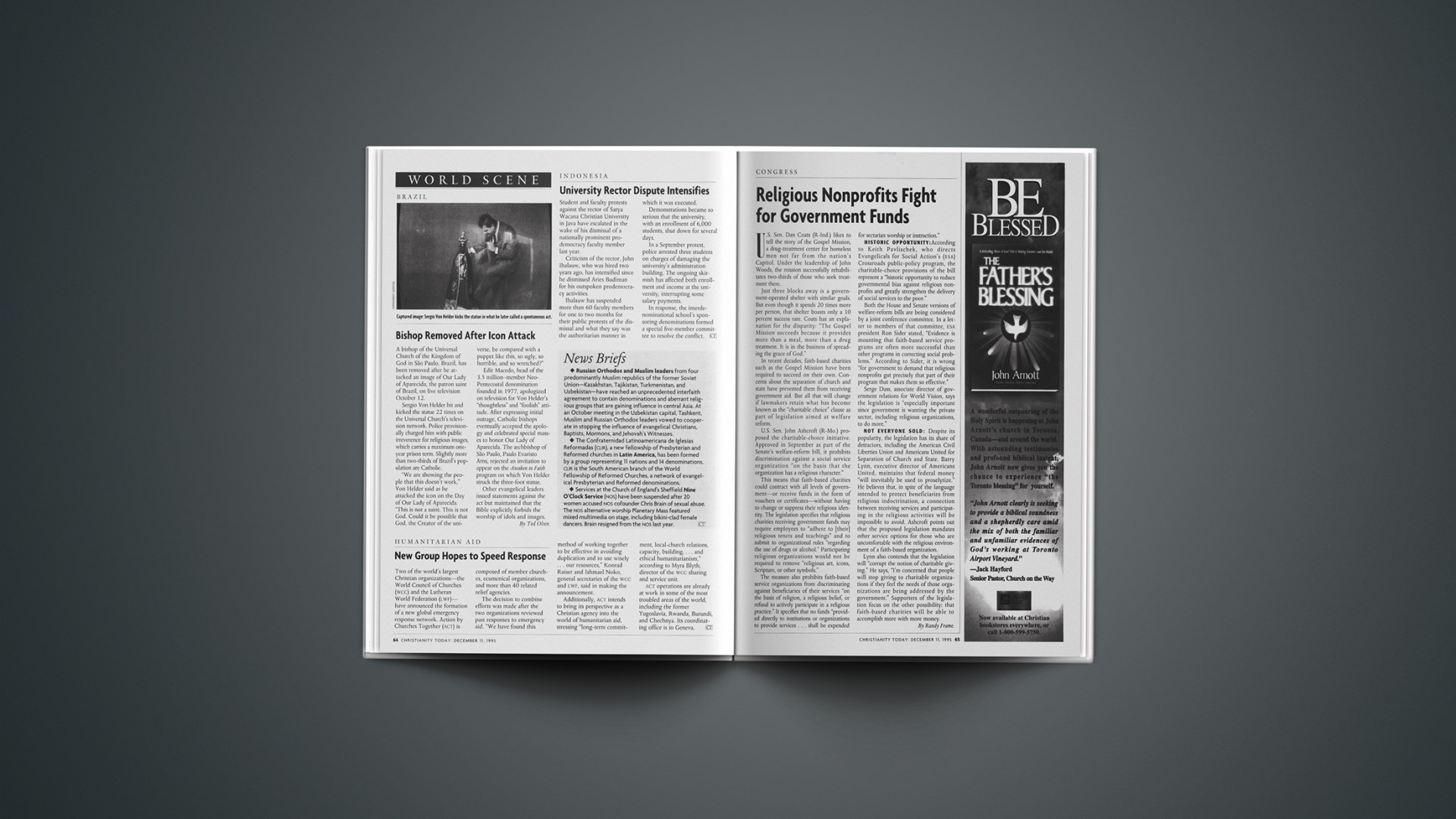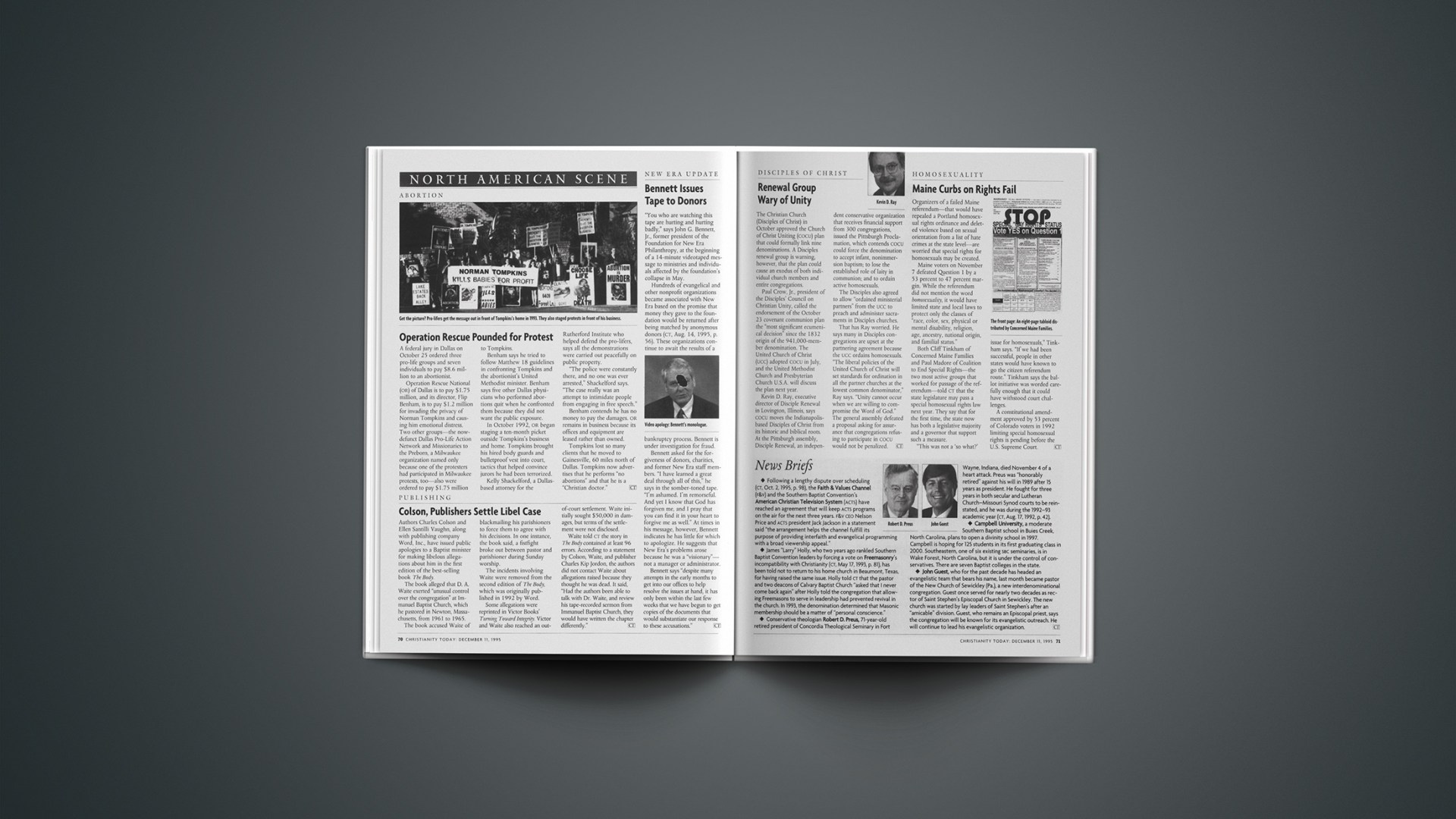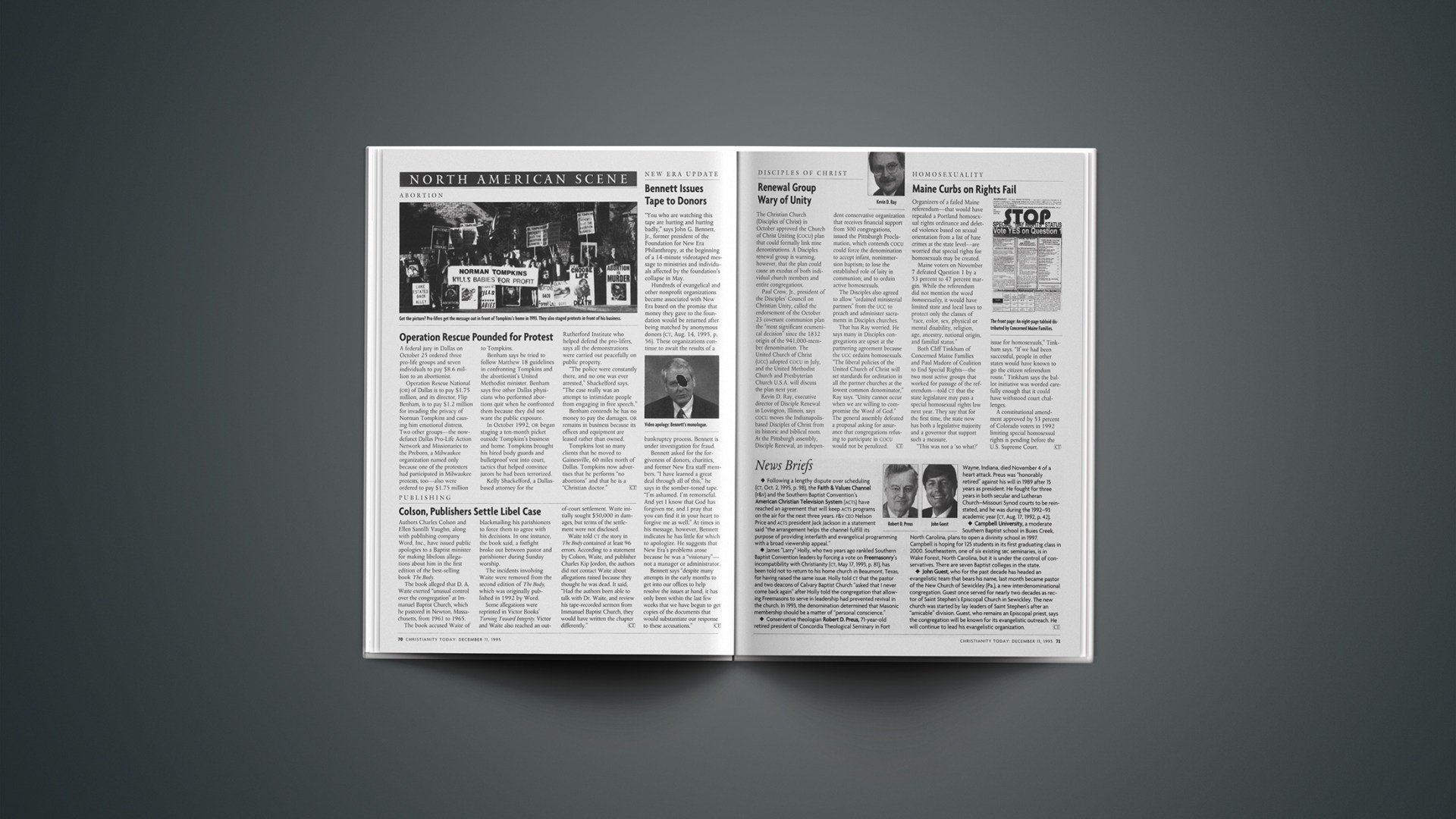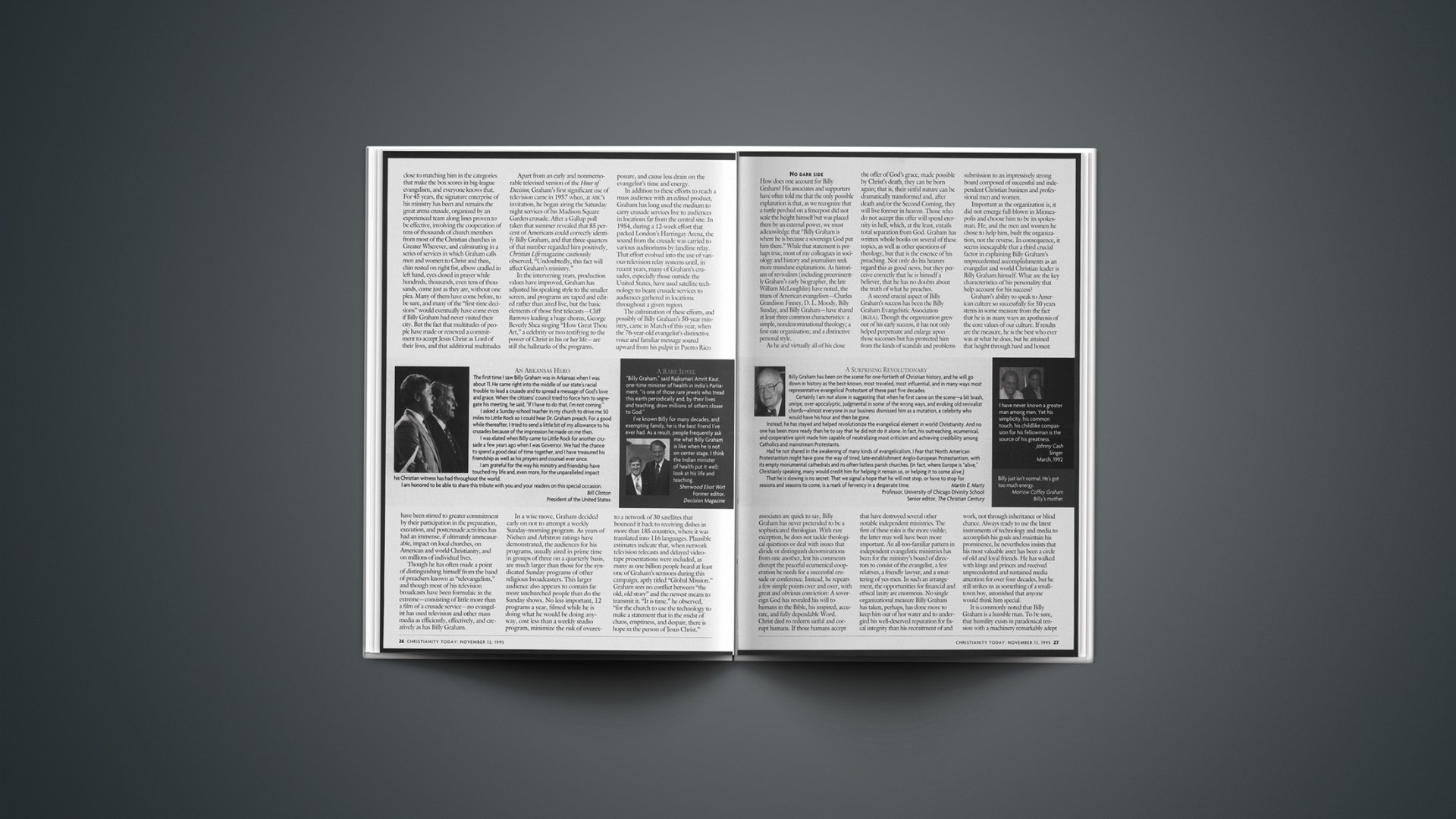A bishop of the Universal Church of the Kingdom of God in Sao Paulo, Brazil, has been removed after he attacked an image of Our Lady of Aparecida, the patron saint of Brazil, on live television October 12.
Sergio Von Helder hit and kicked the statue 22 times on the Universal Church's television network. Police provisionally charged him with public irreverence for religious images, which carries a maximum one-year prison term. Slightly more than two-thirds of Brazil's population are Catholic.
"We are showing the people that this doesn't work," Von Helder said as he attacked the icon on the Day of Our Lady of Aparecida. "This is not a saint. This is not God. Could it be possible that God, the Creator of the universe, be compared with a puppet like this, so ugly, so horrible, and so wretched?"
Edir Macedo, head of the 3.5 million-member Neo-Pentecostal denomination founded in 1977, apologized on television for Von Helder's "thoughtless" and "foolish" attitude. After expressing initial outrage, Catholic bishops eventually accepted the apology and celebrated special masses to honor Our Lady of Aparecida. The archbishop of Sao Paulo, Paulo Evaristo Arns, rejected an invitation to appear on the Awaken to Faith program on which Von Helder struck the three-foot statue.
Other evangelical leaders issued statements against the act but maintained that the Bible explicitly forbids the worship of idols and images.
ctcurrmrj5TE64a5B29
Copyright © 1995 Christianity Today. Click for reprint information.

